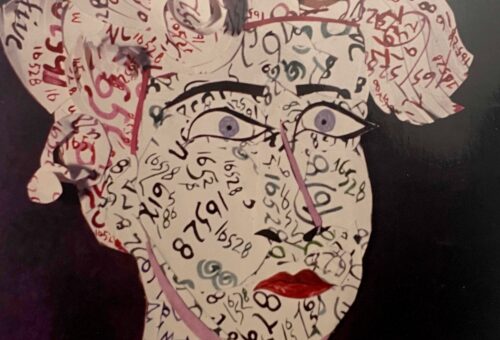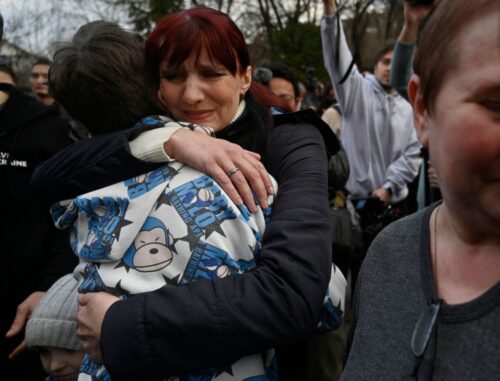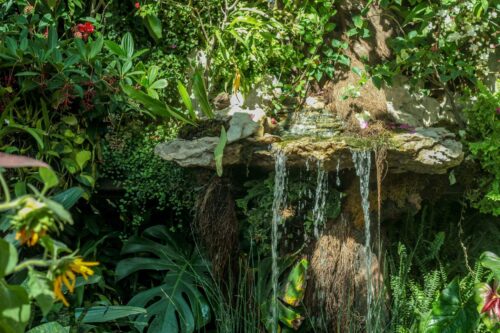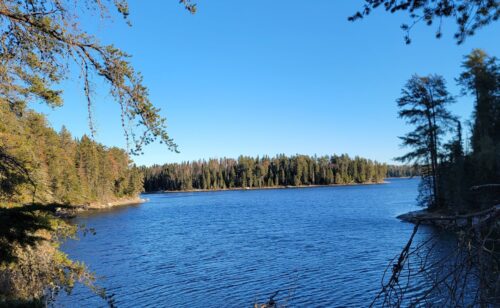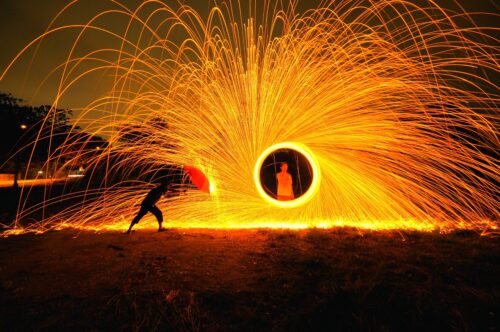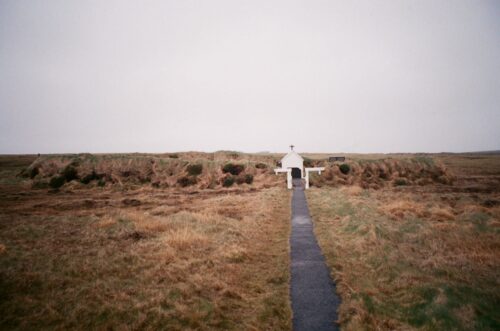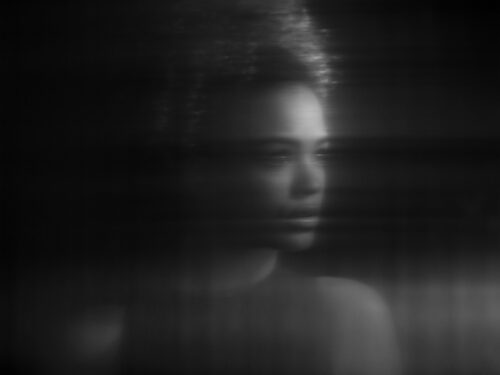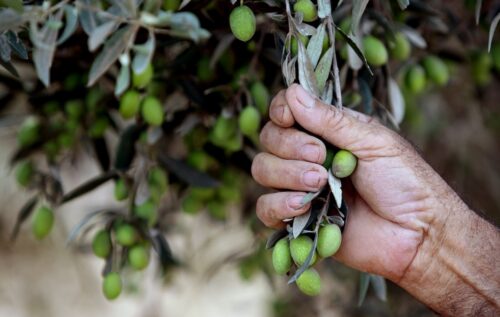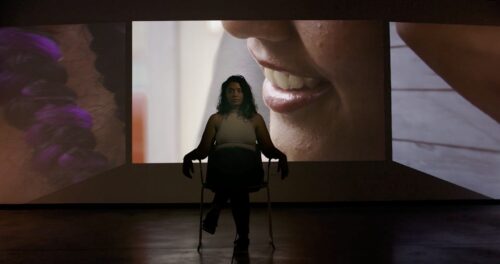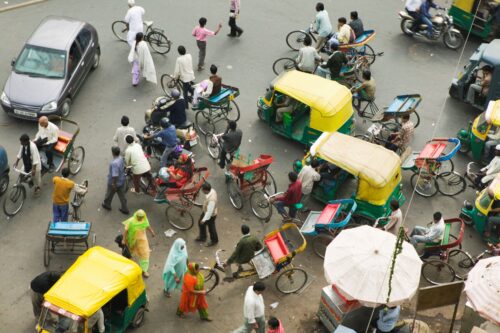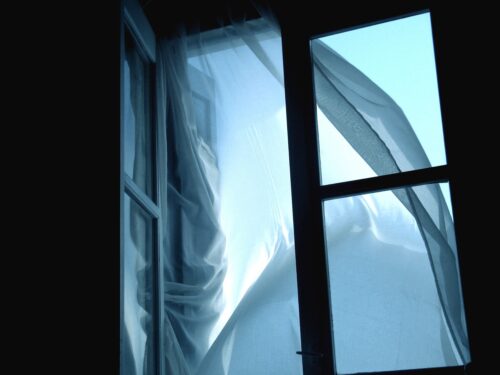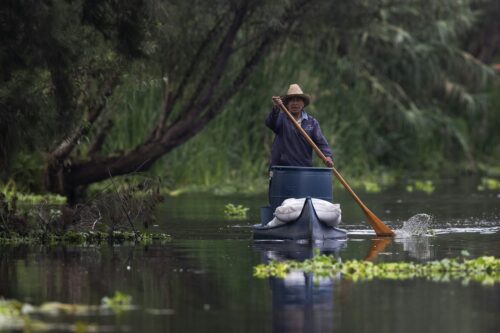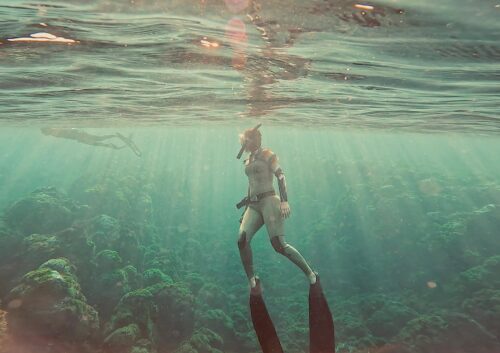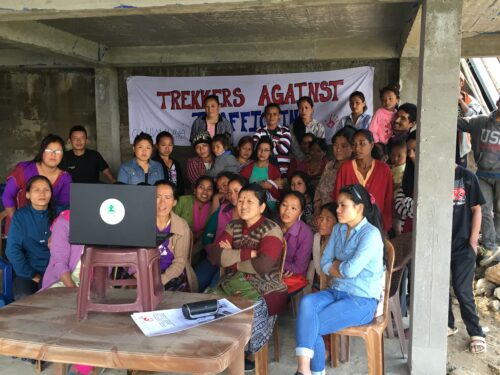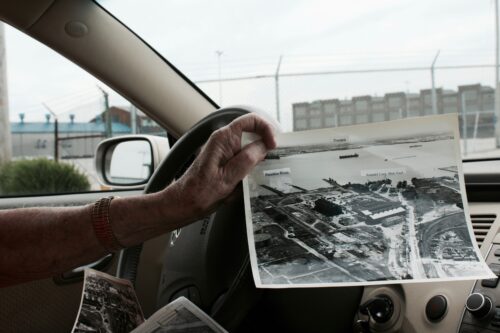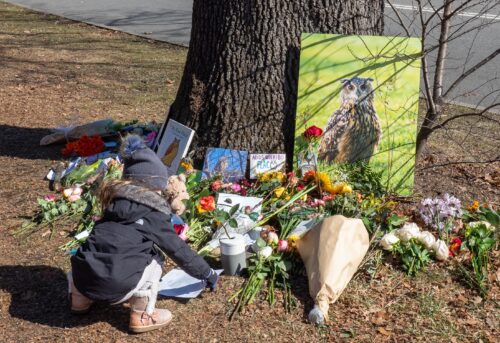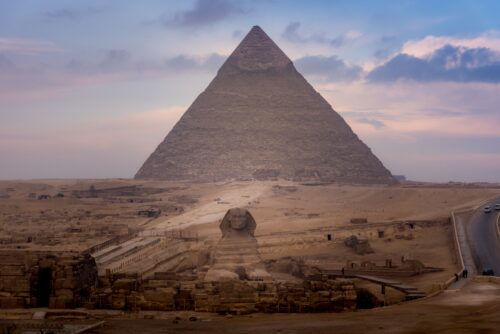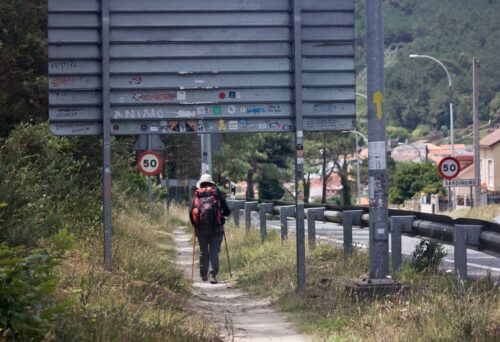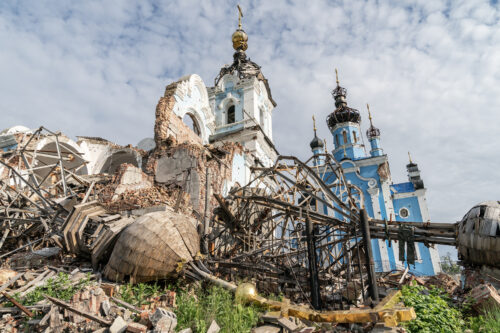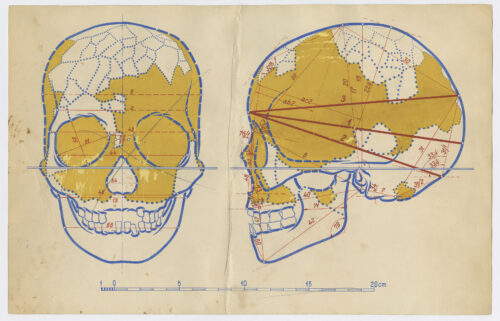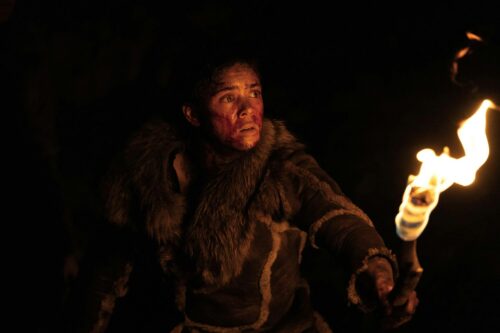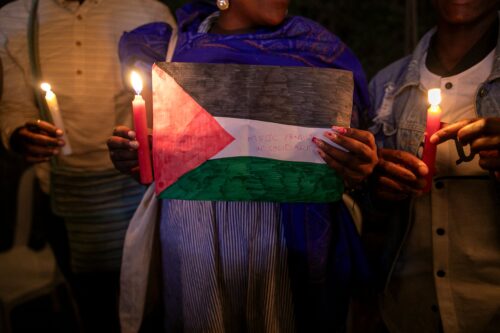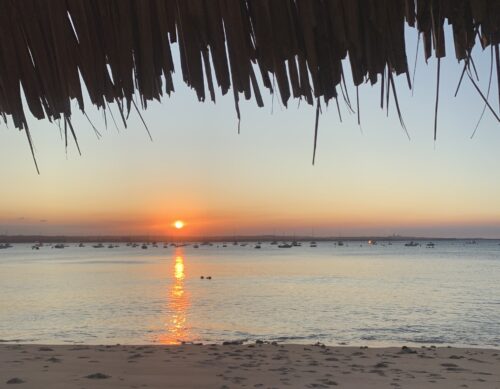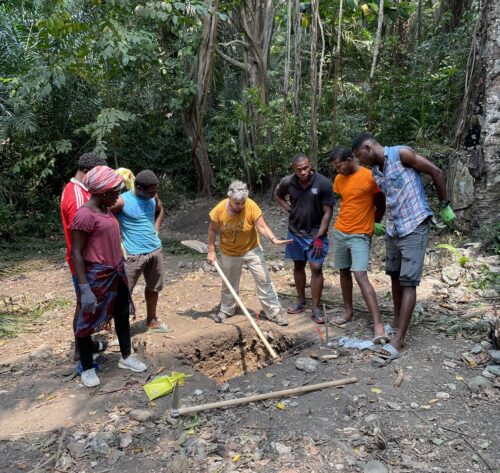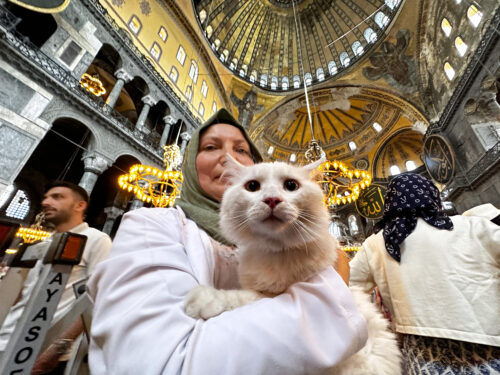SAPIENS Podcast Season 4 Reflections and Celebrations
In this live event, a panel of archaeologists and podcasters celebrates the completion of SAPIENS Podcast Season 4 and RadioCIAMS’ SAPIENS Talk Back series. Meet the amazing people behind the stories of Black and Indigenous archaeologists who are reimagining the purpose of the past.
CART captioning provided by Jordan Mucha.
Season 4 Hosts
Dr. Ora Marek-Martinez (she/her/asdzáá) is a citizen of the Diné Nation, she’s also Nez Perce. As the executive director of the Native American Cultural Center, her work includes supporting and ensuring the success of Northern Arizona University Native American and Indigenous students through Indigenized programming and services. As an assistant professor in Northern Arizona University’s anthropology department, her research interests include Indigenous archaeology and heritage management, research and approaches that utilize ancestral knowledge, and decolonizing and Indigenizing methodologies and storytelling in the creation of archaeological knowledge to reaffirm Indigenous connections to land and place. Ora is a founding member of the Indigenous Archaeology Coalition.
Yoli Ngandali (she/her/hers) is a member of the Ngbaka Tribe from the Democratic Republic of the Congo, a Ronald E. McNair fellow, and a Ph.D. candidate in archaeology at the University of Washington. Her research interests span archaeologies of colonialism, Indigenous archaeology, archaeologies of Central Africa, trans-Indigenous traditions of culture sharing, Black and Indigenous futurity, digital conservation science, remote sensing, and multi-spectral imaging. Yoli’s doctoral dissertation develops digital and community-based participatory research approaches to Indigenous art revitalization within museum settings and highlights Indigenous carving traditions in the Pacific Northwest.
Season 4 Sponsors
- Imago Mundi Fund at Foundation for the Carolinas
- Cornell Institute of Archaeology and Material Studies
- Denver Museum of Nature & Science
- University of California, Los Angeles, Cotsen Institute of Archaeology
- University of California, San Diego, Scripps Center for Marine Archaeology
- University of Michigan Museum of Anthropological Archaeology
- Brown University Joukowsky Institute for Archaeology & the Ancient World
- Columbia University’s Center for Archaeology
- University of Massachusetts, Boston, Fiske Center
- University of California, Berkeley, Archaeological Research Facility
- University of Colorado, Denver, Department of Anthropology
- University of Arizona School of Anthropology
>> YOLI NGANDALI: Hello, hello, everybody. Hello. My name is Yoli Ngandali. I am from the Democratic Republic of Congo, PhD candidate in archaeology. I am here in Seattle, Washington. On the current and ancestral lands and water of Coast Salish peoples. I’m so thankful to live and work in this beautiful place. Welcome everyone. And welcome Ora as well.
>> ORA MAREK-MARTINEZ: Hi, Yoli. Welcome everyone. So I would just like toe introduce myself in my Indigenous language, Navajo language. [ Speaking Native language ]
So I introduced myself to you all in Navajo language. My name is Dr. Ora Marek-Martinez. I’m a citizen of the Navajo Nation, but more specifically, my maternal line is of the Mountain Cove Clan. My father was from Idaho. My maternal grandfather — and my paternal grandfather was bohemian and Italian. Because of that, I am a Navajo woman and my pronouns are she/her.
Originally I’m from Idaho, but I live here in Flagstaff, Arizona now. And so being from Flagstaff, Arizona, with the — being on the homelands, the traditional homelands of 14 different Tribal Nations here, I’d just like to acknowledge their ancestors, their present generations and their future generations as well, and honor the connections and relationships that each of those tribal nations and tribal members maintains with this land.
So thank you, everyone. So excited to be here.
>> YOLI NGANDALI: Oh, my gosh. I’m so excited to be here. We’re just here to have a little bit of party, celebrate a little bit, and talk a bit more about the season 4 podcast. The SAPIENS season 4 podcast and Cornell’s RadioCIAMS’ SAPIENS Talk Back were made possible by dozens of people and organizations.
Some of them including Wenner-Gren Foundation, the House of Pod, Society of Black Archaeologists, Indigenous Archaeology Collective, Archaeology Centers Coalition, and 12 other sponsoring organizations.
And so we’re here today to party and to celebrate with Adam Thomas Smith, Sara Gonzalez, Ayana Flewellen, Gabrielle Miller, Danilyn Rutherford,
Chip Colwell. We’ll have questions for a few key people and open up the floor for discussion about next steps. If you have any questions or comments, use the Q&A function at the bottom of your screen to interact with us and we’ll try our best to answer some questions, if we have them.
So the first question is for Rebecca. Can you turn on your camera? Hi. How’s it going? So, Rebecca, you were part of RadioCIAMS’ and the Talk Back Series. Were there any memorable moments that made you want to celebrate?
>> REBECCA GERDES: Thank you so much for having me and thank you so much for the question. So I’ll just add I’m a PhD student, a PhD candidate at Cornell. In the Classics Department. I focus on the applications of chemistry and study of food. I usually say I study dirty dishes.
And I’m also the Assistant Director of CIAMS. I’m speaking from that and having gotten to be on an episode which was an immense joy. Moments that I — that made me want to celebrate, oh, that first — that first recording session that we did. I think everyone was really — I was a little jittery, we don’t know what we’re getting ourselves into. This is so exciting.
And I think the thing that just made that moment shine for me was our guest panelists from the ACC Member Institutions, just so excited to be there. So excited to get into the conversation. And that seemed it was true across the board for all the episodes we recorded.
And it was definitely a little bit of a thrill to hear the companion podcast getting plugged on the SAPIENS podcast.
I also just really — from the production side, you know, RadioCIAMS’ is sort of an amateur-run university podcast, and so the neat thing about this particular SAPIENS Talk Back Series is that we actually had a different sound engineer for every episode to kind of take the burden off of one person.
But one thing that was incredible to see was the Cornell grad students who just stepped up, got themselves into the training, and really put this whole thing together and stepped up to the — stepped up to the challenge.
>> YOLI NGANDALI: Yeah, thank you so much. Yeah, that was really great. I remember in those recording sessions, you know, being able to speak with other grad students I think has been, like, really helpful for me to kind of bounce ideas off of and, you know, really build that community.
Because I feel like having that community and that cohort of people that are all centered and moving forward in the same way I think is, like, so amazing.
>> REBECCA GERDES: Yeah. And I just want to add that, you know, Adam and I are both coming on the from the traditional homelands of the Kyuga nation. I want to honor their connection to the lands and waters of the land that Cornell currently sits on.
>> ORA MAREK-MARTINEZ: Thank you, Rebecca. I really appreciate that as well. So I actually do have a little bit of a follow-up question, if that’s okay. You know, we had amazing guests this season and they shared a lot of their experiences, but also a lot of their strategies for sharing their messages and educating folx.
And so were there any of the guests or topics that you discussed that sort of challenged your own own understanding of archaeology or where you’re coming from? And just maybe speak a little bit about that experience and where you are now with some of those understandings. Thanks.
>> REBECCA GERDES: Yeah. I mean, just revisiting the episodes this past week, it’s — as someone who, you know, I’m in a Classics Department that’s been a very specific type of training. It’s really — the series really challenged a lot of the ways that I previously have been thinking.
I think one of the things that I loved about the episode I got to be a part of on food was just hearing Kelley Fanto Deetz and Peggy Nash just talk not just about the need to speak about pain that Indigenous Black archaeology is not just about revisiting the pain, but also about celebrating the joys and that they need to be held in tandem.
So that we’re not just talking about Indigenous and Black archaeology is all about victimization. And the stories of pain. But just the stories of survivance and also of just pure celebration. So I feel that’s, you know, what we’re here for now. And for me, that was just such a powerful moment.
And even just seeing them play off each other, Kelley Fanto Deetz and Peggy just loving the space that they were in together. And each other’s presence. And validating each other’s presence and the need to commit to this work. And that was something that really stood out to me. This is not a halfway — this is not a halfway commitment. You are either all in or you’re just taking up space.
>> KELLEY FANTO DEETZ: Can I just chime in real fast? Thank you for everyone involved in this podcast. The voices of ancestors can be blasted on the internet, anywhere, it’s a good day. It y’all slayed it. So thank you for those words and it’s an honor to be here with all of you.
>> ORA MAREK-MARTINEZ: Just amazing work as well. Thank you so much, Kelley. I am just in awe over the — each of the episodes. And just the knowledge and the, again, the strategies that were shared I think were so powerful in moving us forward as a discipline, but also as individuals, as you said, Rebecca.
This was something that is also very emotional space. It’s a very healing space. And a lot of that came through in the interviews and just the, you know, the profound moments that each of us has had in challenging our own held beliefs, but also in making sure that like you said, we’re committed to this, right? And it really is we all have to commit.
And so, again, I just thank you for those comments. So… great. All right.
So our next question, actually, is for one of our other coconspirators, Adam. So, Adam, if you can turn on your camera here, you helped us organize the participation of the Archaeology Centers Coalition, which helped provide important material support for this work. In addition to that provided by the Wenner-Gren Foundation. Can you tell us a bit more about these behind the scenes efforts? Which were amazing.
>> ADAM THOMAS SMITH: Ora, thank you so much for that question. There was a lot of behind the scenes. Obviously doing anything like this requires so much effort. And the two of you, Yoli and Ora, were such wonderful faces for the project on the SAPIENS side of things.
I should maybe say a little bit about what the Archaeology Centers Coalition is. This is an organic, self-organizing group of archaeologists which started as sort of center directors from major archaeology training centers.
From across the U.S.
From the California side, places like UCLA and Stanford. UC Santa Cruz. East coast to Brown and Cornell, obviously, and places like that. But what’s fascinating, it’s also grown to include a whole host of what I kind of think of as fellow travellers. Because I work in the former Soviet space. So the idea of fellow traveler is one engrained in my consciousness.
And the group really works out of only the commitment to one another. And to the larger mission of the organization. To work towards a discipline that we want to be part of. That we want to actually see as inclusive, that’s diverse, that leads with kindness and care among all virtues.
And so it’s terrific to work with a group like this because we’re all there because we’re committed. And none of us is there because we have to be there. And so the great thing about doing behind the scenes work with a group like that is when you Zoom call someone and say, I really need a sponsor for episode 7, everyone says yes.
Or I need a sponsor for episode 6, everyone says yes. And it’s great to — at least as someone in a position like mine — where you sometimes have to say no to people because funds are limited or resources or limited or things like that.
In an organization where you always get a yes. Which is just an unusual thing for anyone who is used to a university system. When no tends to be the answer you hear more often than not. With the ACC and my colleagues who I want to acknowledge here that are part of this organization, they are just unbelievably generous and kind.
So it’s fulfilling to work with people who always tell you yes. And they are — I should say also — they are really fundamentally committed to this work. Both through the webinar series that happened last year. The podcast series that happened last year. And they’re, I think, the ACC as an organization is always ready to hear what else can we do to help further our shared mission.
>> YOLI NGANDALI: Adam, do you have any memorable moments that you want to share with everybody? Or maybe your favorite episode. Something like that.
>> ADAM THOMAS SMITH: I have two memorable moments that I’d love to share with you. One, Yoli, is you. Because I already shared this with you. Because there was a moment, you know, Yoli was one of our guests on the first episode, and we’re getting — like Rebecca said — everyone’s a little nervous because we’re not exactly sure what this is gonna look like.
The start of the episode was Yoli saying, okay, let’s do it. And that was when I knew, okay, well, this is gonna work out because, you know, Yoli’s got us well in hand.
And that actually was almost every episode, you know? It was every episode. Every episode was just like, all right, let’s talk. Let’s confront the hard things. Let’s walk — work through the things that are difficult. Let’s talk about everything. And I thought that that was just the honesty of the conversations was just something that was thrilling for me.
I think the other aspect, the other memorable moment for me was a moment when Dorothy and Rachel, in Dorothy and Rachel’s episode on repatriotiation, confronting the burden of feeling like one is in charge of the decolonialal episode. Dorothy had a very powerful moment, I think, where she talked about her own realization that the effort of decolonization is not on her back, right?
And coming to that understanding that this is a project that we are all engaged with and it doesn’t fall to one person. And hoping that out of conversations like this, one sees everyone shouldering that burden and helping to try and make that burden slightly — even slightly less feel like that bag of rocks that you’re carrying and that you don’t have to carry it alone.
I think that was part of the mission that I think we envisioned as coming out of this series, is feeling like you’re not carrying the bag of rocks alone. And so if we succeeded in helping people feel like there’s other shoulders here, then that will be, I think, a useful contribution from this endeavor.
And it’s been a pleasure to be part of.
>> ORA MAREK-MARTINEZ: Well, thank you so much, Adam. That, I think, is — that really touched my heart. In thinking about, you know, you don’t have to do this alone, right? And being an Indigenous archaeologist and literally 1 of 8 other Navajo archaeologists, that’s something that I’ve felt for the majority of my career.
Was that this was something that I was doing alone. And I appreciate the sense of comradery and family that I’ve felt in this group. And just in hearing the stories from people that I’ve never met before. From these amazing up and coming scholars and these, you know, ancestral figures, aunties and uncles in our lives.
I think that is one of the — for me, one of the fundamental draws to this work, is that we’re building a collective together here. And that feeling of you’re not in this alone and that there are people here who do the same work, do similar work as you, and that you really do have support.
And, you know, for me as an Indigenous woman, that’s something that I’ve needed in my life. And as an academic, it’s also something that I need. And so I just want to take this time to say — [ speaking Native language ] thank you to each and every one of you for taking the time to be your real selves in academia and exposing some of these sort of vulnerabilities that we’re expected to hide as scientists, right?
And so I appreciate this space of love and care and healing even in that we are joining together to do this work together. So I just really want to, again, thank each and every one of you for all that you’ve done and everything that you do as well. So… from the bottom of my heart.
>> ADAM THOMAS SMITH: Back at you.
>> YOLI NGANDALI: Thank you. Thank you so much, Ora. And to the people in the audience, if you have any questions for me, for Ora, Adam, Rebecca, so far just put it into the chat. You know? I think there’s still some time that we can get to it.
But I will move on to Gabrielle. Gabrielle Miller. You can turn on your video. Hello.
>> GABRIELLE MILLER: Hi. It’s nice to see you all.
>> YOLI NGANDALI: Hi. You generously continued on as an on-air guest. Thank you so, so much. What was that experience like for you and what was it like to hear your own story being told back to you once the episode went live?
>> GABRIELLE MILLER: First of all, I think that the experience of making it itself was one of the most gratifying, healing experiences that I’ve been able to have recently. It was truly wonderful to be a part of, first of all, the structure that has been created here of taking Blackness and Indigenousity and putting together people that work from a heartspace, a declonal self-reflection space.
You know, so much of my practice and my work builds off of not only the reclamation of Black space, but learning, you know, the Nespers tribe Cultural Resource Program. Seeing how people move from spaces of being sovereign, moving with confidence and protecting and safeguarding that heritage.
When we have spaces like this where these conversations can happen in tandem, we are able to share a power to step forward and do that work with more tools. So even just this platform existing was really amazing to be a part of.
And I remember in the conversations that we were having, you know, we report on our experiences in academic settings. We do presentations. But I had just recently, you know, come off of a boat in doing some work, and I remember the conversations that we had.
And even though, you know, a lot of them was me answering questions, we also had a lot of sidebars. I really feel like because of that space, I was able to process with y’all what — some really, really fresh experiences and things that I was still reflecting on.
So in the same way that I was contributing to a podcast, I feel like y’all were really contributing to be able to be supportive in processing that experience. So I loved that there was, like, a sense of community, and even being able to disseminate and tell other people about the work that we do.
And then hearing that spoken back to us, you know, Ayana and Justin, the Society of Black Archaeologists, in numerous ways, in so, so many ways have laid a foundation that have real, tangible outcomes nose of us that are here, that are coming up in our professional lives, coming up in our careers.
Being able to have the space to do that work. Being able to have resources and having advocacy. Justin and Ayana are always advocating for me. The reason why I started the PhD program that I was in and doing my dissertation work in Saint Croix is because, you know, serendipitously, I met them on Saint Croix while doing some of that self-exploration.
To then hear the conversations that we were having in our own individual spaces and hearing those in conversation with each other I think made that message and that connection ring true for others. And brought together seemingly separate spaces and let people experience this conversation through so many different lenses.
So I just thought the whole experience was beautiful. And, you know, Ayana is part of that episode. I don’t know if you had anything to add to that as well, but it was really a pleasure for me.
>> ADAM THOMAS SMITH: I thought that was a fascinating episode, Gabrielle. It was really the way the conversation clicked. And we saw this a lot. I don’t know if you had this experience, but I found myself in an analogy at one point. Where that moment in a concert where people get to their feet and start dancing. There were, like, these moments in the conversations also where, like, things started to click.
And the sort of awkwardness of the first moments where it’s kind of like a panel talking to a host. That sort of disappears and, like, the dancing starts.
>> AYANA FLEWELLEN: Yeah, absolutely. And just to add, it is such a joy, especially, like, having been at the foundation of SBA to really see this organization, like, grow and spread its wings because of people like Yoli. Because of people like Gabrielle that are really taking the message of the SBA to really not only be the space of network and home for archaeologists of African descent.
That really center on advocating for sites of African Diasporic history, but really figuring out what it means to be present and whole in this space moving forward. And I cannot, like, sing Yoli’s praises. I know this is, like — Yoli’s celebration, but, like, truly, the ways in which the SBA has been able to grow from our graduate students, right?
Who are just doing phenomenal work. Yoli, Jordan Davis, who now is at Austin, Texas. So excited. Craig Stephenson, who is doing phenomenal work at Northwestern. These young scholars, which is wild, because I feel like we’re the same age — I say it to myself all the time. I think we are. In my head at least.
But I’m just like SBA, it expands and it breathes and it inhales and exhales so much more deeply because of the people who are here to sustain it. So I’m just internally grateful to have both you and Gabrielle here, like, doing that work. So that’s my only add-on.
>> YOLI NGANDALI: Thank you. Thank you so much. I just appreciate that so much. And, you know, to be able to, like, build this network, to grow these relationships, and to keep moving forward in this way it just, like, warms my heart to no end.
And I feel like we can keep on moving on. I’d love to hear a little bit more. Like let’s keep talking. Let’s keep building up these conversations. So now I think it’s time to just open the floor for everyone to speak on these questions. Ora, can you hand it off?
>> ORA MAREK-MARTINEZ: Yeah, definitely. So, you know, one of the other questions I think that I’m a little bit interested in here is really thinking about what comes next, right?
What can we dream together? And where do we see these podcasts leading, for example? So we had our webinar series. We moved into the podcast series. And so what’s next for us, right? What are we dreaming? What are we trying to create collectively?
But also, you know, what, again, what can you challenge all of us to do better and directly in the future? We spoke very widely about futurisms and I’ve heard this time and time again, and thinking about it from an Indigenous perspective, right? We all have these roles as aunties and uncles for these up and coming generations.
And so, you know, being these academic aunties and uncles, what kind of advice would you all have for these future generations? And how do we keep moving forward with this same kind of momentum? So we’ll up it up and interested and excited to hear from all of you.
>> YOLI NGANDALI: I don’t think we’ve heard from Sara Gonzalez just yet.
>> SARA GONZALEZ: How did you anticipate I wanted to say something, Yoli? I think my biggest piece of advice for folx that are up and coming is just finding your community. And one of the most inspirational things to see as we’ve all worked together is how people are finding that community together.
You know, Ora, you talked about how lonely it was, you know, first starting out and being 1 of now 8 archaeologists. Like we all live in these spaces where we’re often the only one in our programs. Or our departments. Or the places that we inhabit. And it can be such a soul-crushing experience, frankly.
And really, like, the one bright spot — it wasn’t just one — it was so many. Because those bright spots were Ora as a grad student. They were Kelley. They were all of these other people I had both within and outside of my department. And now, like, all across the U.S. and really, all across the world now because of the community that we were able to build together.
And that community really sustains you when you’re in these places. And it opens up new opportunities for dreaming. I mean, I think, you know, the community that Yoli and I have at the University of Washington, for example, I get so inspired by talking to Yoli and all of our other younger students because they’re able to imagine community, and more importantly, the future.
In a way that I haven’t been able to. And others of our, like, auntie and uncle generation also haven’t been able to. So that port for me is really inspiring, to see how this just blossoms and grows. Yeah, you really all are the future of where things are headed and I’m so excited to see what’s next.
>> AYANA FLEWELLEN: I think just to follow on Sara, I always go back to Adrien Marie Brown. She has this quote. Move at the speed of trust, right? And I feel like the ways in which this group came together, Justin, me, Sara, Ora, Adam, Chip, Danilyn. The way we came together from such diverse backgrounds both, like, within the field.
Our own sort of identities as well. Like we really came together with this understanding that we can make an impact, but it was gonna take conversations with one another. And I remember having, like, these really tender, like, spaces of, like, you know, thinking about the intersections and the tensions within, you know, Black archaeology, Indigenous archaeology, and, like, having these spaces to just talk with folx.
Who in that space of, like, trust, like, there was a deliberate space of care. A deliberate space of, like, love in that. And it is so hard, I think, in today’s society where there is so much pressure, right? To be, quote, unquote, right without actually understanding, like, across, literally across oceans at times, right?
So I think about Jackie and Alexandra and pedagogies of crossing. And, like, the actual, like, crossings that we did in this space that blossomed this podcast. That blossomed the webinar. That blossomed the founders group, a funders group that blossomed the ACC.
Like it takes the kind of slow, kind of cultivation of it. But it also means, like, having those tender conversations, right? Slipping and, like, having someone pick you up where it’s like, no, that’s not the term that we use anymore to talk about ourselves.
We use this term, right? Like even those sorts of moments of holding, I’m just so grateful for it. In a community — and I feel like in an academic community that actually does not foster that. So I just want to say, like, a deep, deep thank you. And, like, the encouragement to continue having that and how we, like, envision and move forward.
>> REBECCA GERDES: Can I just jump in and say thank you so much for that? I think listening and hearing everything percolate, what I walked away from from listening to all of this from the webinars, one big thing is just knowing it’s okay to make a mistake, but just being willing to come in with — and try and be willing and to learn.
And like you said, Ayana, we’re in a field that can feel so stale and not very welcoming. You know, academia can be very impersonal. And it’s been incredibly beautiful to see how much heart everyone in this space brings.
And it makes me feel more of a whole person to come in just ask, well, what does it mean to bring my whole self to what I do? And what does it mean to stop thinking extractively about archaeology and start thinking about humility and being a servant.
And I have no idea where that’s gonna lead because I work in the Mediterranean. I work in archaeological science. I don’t know what that means, but I know this is a safe space to have — to push those buttons and have those conversations and listen and learn.
And that’s just been an enormous gift. And so thank you, everybody. And I’d love to — that’s where I want to see things going, is to continue to find spaces to sit at folks’ feet just learn.
>> DANILYN RUTHERFORD: Yeah, Ayana, everything you said — everything everyone has said has been so meaningful and moving to me. I’m just absorbing it. It’s been such a privilege to be able to spend time in this group. I know from my perspective, you know, it’s very easy —
I think there is a model for how to be in a foundation, which is to really be separate from the people who you’re supposedly serving. And to be really welcomed into this group and invited to listen and invited to make mistakes. And invited to laugh, right? And invited to bring my whole person to this process.
It’s made my job so much more meaningful than I think it ever could have been. I think there’s a way that when you have some resources, you feel like, I want to to something. What should I do? Oh, I’m supposed to be the person that knows what to do, right?
And this has been just a tremendous opportunity to not be the person who knows what to do. But, in fact, be the person who learns, right? And who can make mistakes. Who can move forward. I think a lot of other people who are involved in organizations, 2020, the murder of George Floyd, everything that’s been going on in the world, I think there was a real pressure to come forward and make statements.
And one of the ways that I got involved in this is we made our statement and we immediately got called out on Twitter. Okay. What kind of good work are you going to do, right? And feeling completely paralyzed. Like what is the good work, right? I don’t know what the good work is. And I’m just so thankful to this group because you’ve helped to show me what the good work is, and I think it’s going to make an enormous difference going forward.
So I just am incredibly grateful for this. I’m incredibly grateful for the momentum that this group has sustained. And I think that actually does come out of the fact that everyone brings their whole person to this process.
>> ADAM THOMAS SMITH: Can I follow up on a comment of Danilyn’s? I couldn’t agree more with what Danilyn has just said. My partner and colleague has a phrase that she used to describe the work that we do — the heritage work that we do.
And she talks about it. I really love. And I’ve been thinking about it a lot. She calls it archaeology in the maelstrom. And one of the things that I think that I’ve really taken from this conversation is, you should be in the maelstrom. That that’s not just a matter of where you end your up and you find yourself.
But you have to purposefully get there. And that’s where — if I was taking Ora’s prompt to give advice to nephews and nieces in the academic sense, it would be to be in the maelstrom. Because you learn from that experience of — and you will fall down, undoubtedly, in the maelstrom, but it’s that process of being there that is just so incredibly rewarding.
That I think that — in thinking about the discipline, there should be no going back to archaeology that’s not in the maelstrom.
>> CHIP COLWELL: That’s such a good way of framing it, Adam. I like embracing that. I think often we’re trying to run away from the hard stuff instead of running into it and being a part of it. I really love that metaphor.
I also just wanted to thank everyone so much for giving so much to these seasons. You know, I wear a couple of different hats, and one of them is an editor at SAPIENS. And I’ve been a podcast host behind the mic. So I know how much, you know, that hosting work is involved in reading those lines over and over.
And trying to get it just right to the producer’s liking. You all probably nailed it on the first time. For me, it would take, like, 15 times and I still couldn’t nail it. So just thank you first and foremost to Ora and Yoli for leading us on this journey as listeners. He and bringing your skills and your history and your heritage and you, you know, fully to the season.
You made it all so deep and meaningful. So thanks to you two, especially. But thanks to all of you also on mic. I know that’s hard, even just as a guest. So I appreciate you giving so much of yourself and kind of being vulnerable, you know, in a space where, you know, it’s a little nerve-racking, too.
Where you don’t know how things are going to be edited. You don’t know exactly the story that’s going to come out of the other end of the earbuds. So we appreciate your trust. And due to very circumstances, the House of Pod team couldn’t be here today. But there were some amazingly talented producers who also gave so much.
So just wanted to give a shout-out to them and to recognize everything they’ve given, too.
And then have the Talk Back Series was just, like, just brought it for me to a whole another level. So loved how the SAPIENS, you know, is for my mom and my partner and, you know, people who don’t know a lot about archaeology. And then, like, we really got into it with the Talk Back Series.
I thought there was so much depth to it. So I just — I’m just, like, so honored to have been a part of this. And in such gratitude to all of you.
But then also I wear this, like, archaeology hat. I’ve been in archaeology for a couple of decades now. And so to go back to oh Ora’s question of, like, what next and really think about the future and how can we be challenged to do better through the series?
You know, I think — let’s see if I can find the right words for this. But, like, I feel like there’s been probably a crisis — maybe it’s a maelstrom for, you know, 20-some years in the field. Maybe even since the first Native protests, you know, really visible protests in the ’70s or even back to, like, the first, like, real Native protests back in the late 1800s when a lot of Native peoples objected to archaeologists mucking around in their backyards and their heritage.
So it’s been a century or more, really, of all of this conflict that we’re trying to find our way through and re-imagine what it means for our discipline and for us to be a part of it.
And I just walk away from this — these podcasts feeling like it’s already happening. Like you all are doing the work. Like we don’t — yes, you know, we can keep re-imagining and, you know, there’s more ahead of us, but, like, this is it. Like we are collectively transforming the field. And we’re a part of it right now.
And this is a different field. You know, just the kinds of conversations that are being had. The kinds of people that are in the room. The kinds of questions that are being asked, that are driving our research. The kinds of methods we’re doing or not doing.
Like all of that is fundamentally different and transformative for the field of archaeology. And so I feel like we’re in the future, like, the future is now, right? Like it’s really happening.
And so I do hope we can continue to work together because we need to make sure that this isn’t just a passing moment. But this is really sustained and this truly is a turn for the discipline as a whole.
>> KELLEY FANTO DEETZ: Can I add something? That was wonderfully said, Chip. I’ve been watching archaeological conversations for my entire life. I’m second generation. I’ve really been steeped in this. Really in my lifetime, more in the last 15 years, I’ve seen people starting to enter the field that are actually passionate about social justice.
Passionate about bringing the stories of the past to life. The people I grew up seeing who were wonderful and very important to the field were not passionate about those issues. They were doing it for selfish reasons or reasons that weren’t necessarily passion driven. What I’m seeing now, what I saw really sort of erupt in this group is this passion-driven collaboration.
And I think that — I mean, this is infectious. Like, you know, all of us here are passionate about what we do. You go talk about whatever it is. You can make, you know, a chart look really, really sexy and really exciting. It’s that kind of passion that I think inspires people who would never, ever read anything about archaeology, anything about enslavement, et cetera, to actually engage with the material and want to know more themselves.
And be actors in this whole fight to social justice work. So I just want to say that I love the fact that there is so much passion in this group that’s here. And I love the fact that the field is finally changing. And there’s more people like yourselves that are entering it that are asking not just questions, but the right questions.
And calling people out. Because my God, that’s overdue. So I’ll stop talking there, but I think more of this collaborative, you know, collaboration with passionate people is gonna absolutely transform the field pretty rapidly.
>> GABRIELLE MILLER: I just want to follow up on what you just said, Kelley, because that was so great. And I think the most beautiful and important part about more people like us who are entering the field and fully being a part of it is that it’s not just about representation. It’s not just about numbers. The impact by what we’re doing is creating communities of practice and not just theoretical frameworks. And that in those communities of practice, we can’t afford to be in these spaces and
We can’t afford to be in these spaces and not impact ourselves, our families, our ancestors because when we are in these spaces and we don’t do that, it’s a detriment to our mental health. It’s a detriment to who we are.
And so in a field that has been so extractive, that has been so toxic for what we have been removed from from centuries, we’re getting that pushback now. You’re seeing statements where people are saying, this new archaeology is too activist oriented. This archaeology is too in feelings and is moving away from what science is.
And in that way, that’s wonderful, you know? That’s great. If people want that archaeology, it’s been done, I think people are still very much, you know, successfully doing that work. But that’s not — that’s not something that I want to be a part of and I know that’s not something that the people in this space and the people listening want to be a part of.
So it’s — to have more people, what the impact of that looks like is what allows me — and I think a lot of us — to stay in this space. And I am so happy that it’s happening and continues to inform the communities that we build together.
>> SARA GONZALEZ: Those are such powerful words, Gabrielle. Especially what you also said, Kelley, there, made me reflect when I was a baby post-doc, a senior archaeologist telling me they studied dead things. One, it took my breath away. Two, inside, obviously, that’s not what we do.
Archaeology is about the living. It’s about living communities today. It’s about living heritage, past, present, and future. And it’s been so inspiring to see people, to have that growing recognition that archaeology is about the living.
It’s very much about the world that we inhabit right now. It the about the relationships that we form. You know, these relationships — talk to any archaeologist about, like, what their favorite part of archaeology is, and often it’s the relationships that we form behind the scenes.
You know, it’s the experience of being in the field together. It’s all of those Thursday meetings that our collaborative team has had and, like, all of the laughs that we’ve shared.
And that’s kind of the part that the public never actually sees. And that we never, ever talk about. Because it’s, like, hidden behind this veneer of science.
It’s been so heartening to see that kind of — shot shade start being lifted and us showing ourselves to each other and to a broader public and showing people why we get so passionate and excited about the things that we do.
>> YOLI NGANDALI: Thank you so much. I saw that we just got
Justin coming into the building. You came in at just the right time. We opened up the floor for people to speak about what comes next. What can we dream together. Where do you see these podcasts leading.
And what can you challenge for all of us to do better and differently in the future. So if you have any words on that, we’d love hear them.
>> JUSTIN DUNNAVANT: That is deep. That’s how you put somebody on the spot. Yeah, I think I’m looking forward to how this spirals into so many other things. I think there’s a lot of potential and possibilities. I’ve used podcasts for my classes and my graduate class. Students loved it and were fascinated by it. I started incorporating podcasts into my classes as well.
So students can know that they don’t just have to read a book to get this information. They can also listen to authors and scholars and community talk about the work that they do. I think this is really just another element that we’re able to, again, change what stories are being told and who tells them.
To pull from that quote. And all the work that you all put into this I think has been fascinating. I’m more than excited to think now about my own research and what does it mean to think about what the podcast could look like in terms of conveying our individual research moving forward in the future.
As a space of sort of intellectual inquiry. So I’m excited about all those possibilities and Whova has been involved.
>> YOLI NGANDALI: Thank you so much. I mean, for me, I think what comes next is that we continue to build the strong network of heart-centered people. You know, this anti-racist work that needs to get done does take an emotional toll.
And this group has come together and built those relationships. We’ve done the work. And I think that it’s, like, really important to start where we are right now. And, like, right here. Where I’m sitting, it looks really good. And it looks strong. And I hope that we can continue to tell those stories that need to be told.
I don’t know exactly where this podcast is leading or where this group is, you know, collectively going, but I’d like to see more conversations led by Black and Indigenous archaeologists, specifically on public-facing platforms, and so we as Black and Indigenous people are reclaiming our stories.
We’re reclaiming our histories. We’re reclaiming our ancestors.
And I challenge those who don’t really grasp the weight of this history or the present moment, the future, to understand that in order for all of us to heal and to rise up, to reclaim, to decolonize, to be free, we need to shine the light on those dark parts of our past and pay the correct people to do the work with care.
And so we need to reconnect with our ancestral wisdom. And I think the best way for us to do that is to be at the front supported by our allies. And I think the work that we’re doing right now is that we are changing the standard of care for archaeological material culture and practices, and that’s okay. And that’s just the next step in our discipline.
>> ORA MAREK-MARTINEZ: Yoli, that is so beautiful. I just have to say that I am so happy that we’ve got to spend so much time with one another. And just learning from you has been amazing and just I’m so excited to just see where you’re going and just to see how you will change and challenge our discipline.
And I just have to say that it’s been such an amazing experience and one that I’ll always treasure. So, to you, I just want to say thank you, from the bottom of my heart. [ Speaking Native language ] it’s just been an amazing experience with you.
I’ve learned a lot from you. And I think, you know, moving forward, those are some of the things that I hope we see changing in our discipline, is this sort of flipping archaeology on its head and really changing the way that we learn from one another.
And thinking about, you know, these intergenerational kinds of relationships that we’ve seen here. And for me, it’s about that reciprocity and, you know, my own sacred responsibility of being a teacher, a mentor, an auntie, a mother, right? And a grandmother, even, in these spaces.
And learning and teaching but on the other side of that is learning from young folx like you and teaching me about where we are now, right? And what we need to do. Because it’s really, you know, I have had that opportunity to go through my life and to try and challenge and push and create these spaces.
But it’s also learning from our youth because you all are born with no fear. And that’s something that my generation, unfortunately, we try and we’re trying to overcome right now. Is being born with this kind of fear. For my community, it was, you know, fear of the government. And fear of these authority figures coming and taking our land, taking our children, right? Taking our parents and our aunties, our grandmas, our moms, our sisters.
And now, right, we’re in a space where we have hope. We have collaborators or coconspirators, whatever you want to say, but we’re in this together. A lot of these walls that have been put up for us and have been established outside of us, right, these are all starting to come down.
And I think that’s the most amazing thing that I’ve seen this — in the work doing that I’ve done with this — this community. Is that we were told and we were — all of these sort of pre-existing conditions were set upon us, right? And how we can collaborate and how we can work with one another. All of those things.
And being a part of this group, it’s shown me that we are all coming from a very common foundation of reclaiming and healing. And that, to me, is so powerful. And you can’t stop that, right? These are — you all as this younger generation, you all are the seeds, right? You are the seeds that have grown and have been watered from each generation.
You’re the prayers and the songs and the offerings that our ancestors have made. And you’re so sacred and special. And it’s up to us, again, that’s our sacred responsibility to teach. But also to learn and to listen. And so my hope for the future is that we flip archaeology on its head. And that we burn those colonial structures down. And that we keep moving forward together with the fact that we have —
Keeping it in our hearts that we have love and that we have healing that we’re responsible for. And so I just want to, again, just — it’s been such an amazing healing experience for me. Learning from all of you. And what you didn’t see, you know, were the tears that were shed in the conversation the that we had going through listening to each of the interviews.
And I just want to, you know, special shout-out to Jeanette Harris and her support that she provided to Yoli and I. You know, there were a lot of deep conversations. There were tears. There was anger. And, you know, we pushed through it. We pushed past it. And now here we are stronger together.
And so I really feel that moving forward, we’re coming from this common foundation. And we are a force to be reckoned with. So I’ll leave you all with that.
>> YOLI NGANDALI: [ Sighs ] thank you. Thank you. Thank you so much, everyone here, the listeners. I can’t imagine what’s gonna happen next. But I know it’s gonna be good. So if anybody has anything left to say, you can go ahead and say it.
>> KELLEY FANTO DEETZ: I would love to see some sort of mini documentary series. Like 20-minute videos that reflects some of the podcast material or build on them. Because I think there is, you know, we’re a very visual society and I’m a podcast fiend. But some people just want to watch something. Think that’s a really good next step for this group.
>> YOLI NGANDALI: All right. Well, if there aren’t any other questions, comments, I think we’re done here. Thank you so much.
>> CHIP COLWELL: Thanks, everyone.
